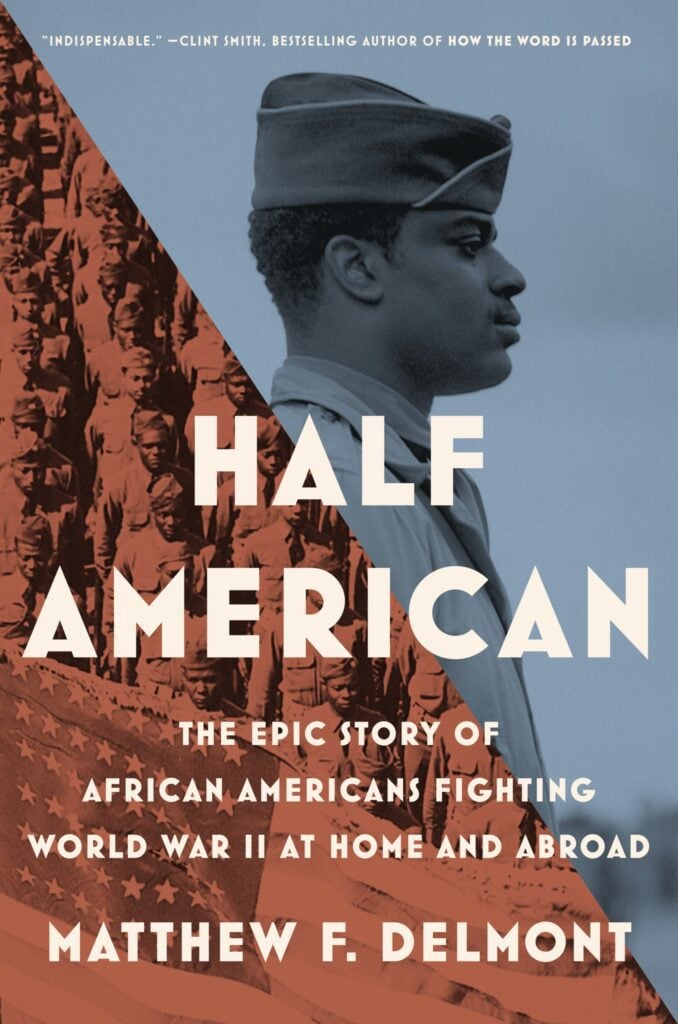Raise your hand.
If something’s going to get done around here, you’re volunteering because things need to be different and you’re ready and willing to make it happen. This starts with you because, well, who else? As in the new book “Half American” by Matthew F. Delmont, there’ll be no more doing things halfway.

In the time before America entered World War II, Black Americans kept their eyes on what was happening overseas, particularly in Spain. The rise of fascism during the Spanish Civil War was of particular interest to them because “fascism was Jim Crow with a foreign accent.” Eighty Black Americans even volunteered to fight against the Nationalists.
Their efforts caught the attention of writer Langston Hughes, who was hired by a Black-owned newspaper to follow the American soldiers, and report about it. While in Spain, he described the “realities of war,” but he also noticed something that astounded him: “‘in this anti-fascist army,’ Hughes wrote, ‘Negroes and whites marched, trained, and fought together’.”
Benjamin O. Davis graduated from West Point in 1936, and had his sights set on a career in the military. Davis, says Delmont, “desperately wanted to be a pilot” but such opportunities weren’t then available to a black man, no matter what his accomplishments. Davis, and other Black U.S. soldiers had to battle racism within the ranks first.
Pullman union leader A. Philip Randolph organized a march on Washington for the rights of soldiers and homefront workers. Thurgood Marshall, chief lawyer for the NAACP, became “energized” by his work for equality, particularly that of Black Americans who wanted to volunteer to “serve their country without being degraded by their countrymen.”
But, says Delmont, that “was only half the fight. Victory would be incomplete unless it also uprooted white supremacy…. These dual war aims coalesced under a slogan that came to define the Black American experience during the war: Double V.”
No matter how much you think you know a subject, there are always stories you’re missing. On the topics of racism and war, “Half American” will tell you some tales.
This is one of those books that fills in the blanks on the things you missed in history class – or the things you were never told in the first place. The stories in here are stunning and quite moving, but also frustrating, even 90 years after the fact. It’s like sitting at the VFW, listening to old war stories that were told in a whisper but that need shouting.
Author Matthew F. Delmont, who is a history professor at Dartmouth College, explains that his research and this story as a whole “has forced me to see the war with fresh eyes.”
Readers, whether veterans or not, should agree.
Beware that this book can occasionally seem a bit academic – it’s heavy with dates and site names, but the feeling passes quickly enough that armchair historians can still enjoy it greatly. If you need to know more about Black history in World War II, find “Half American” and raise your hand.
c.2022, Viking
$30.00
400 pages






